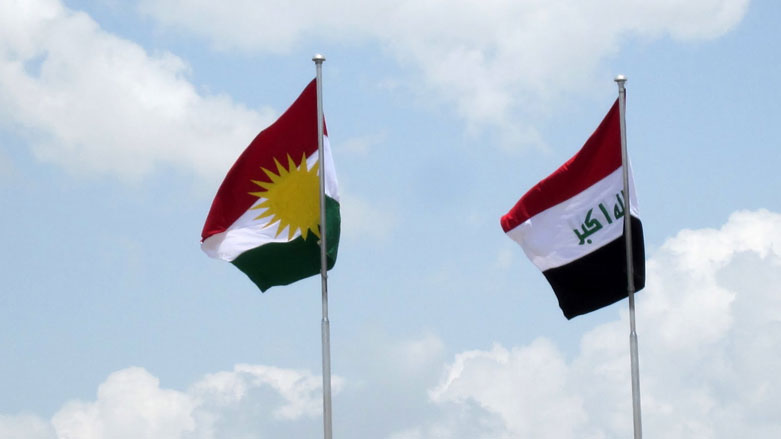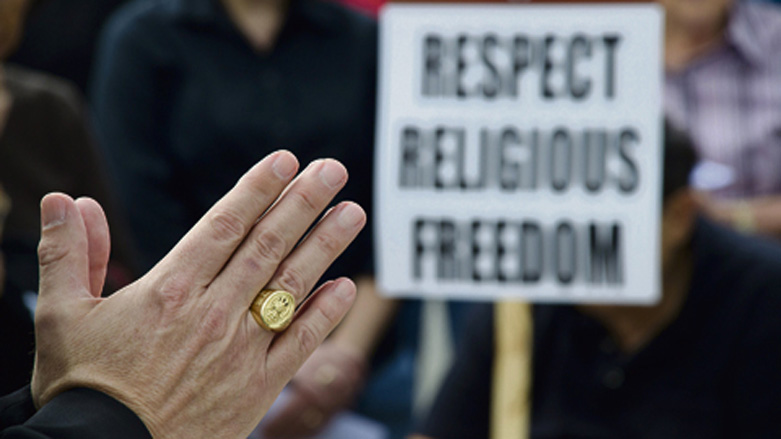Iraqi dynamics Kurdish advantage

WASHINGTON DC, United States (Kurdistan24) - After the National Assembly ousted Iraq’s highly capable Kurdish Finance Minister Hoshyar Zebari, many predicted a crisis in relations between Erbil and Baghdad. However, no such crisis has materialized. Rather, two weeks later, ties between Erbil and Baghdad are better than they have been in years.
These substantially improved relations follow the visit in late September of Massoud Barzani, President of the Kurdistan Region, to Baghdad, where he met with Prime Minister Haydar al-Abadi, as well as the leaders of Iraq’s other political factions. President Barzani, however, did not meet the former Prime Minister, Nuri al-Maliki, whose anti-Sunni sectarianism facilitated the rise of the Islamic State (IS) in Iraq.
Basic questions about Iraq’s future—and that of the Kurdistan Region—are now in play. But Iraq’s Shia leadership is divided, because of the jockeying for power among them: above all, Maliki’s efforts to recover his position. And the disarray in Baghdad gives the Kurds a significant advantage, at a crucial time.
The National Assembly has already removed two of Abadi’s key ministers—the Defense Minister, a Sunni Arab from Mosul, as well as Zebari. It has further signaled its intent to oust the Foreign Minister, an ineffectual and partisan Shia, as well as the Minister of Electricity, a Sunni from Anbar.
These rebellious Assembly members are acting at Maliki’s behest, and their ultimate target is Abadi himself, it is widely believed.
The rise of the Shia militias—the Popular Mobilization Units, or Hashd al-Shaabi is another threat to Abadi. They were called into being by Iraq’s senior Shia cleric, Ayatollah Sistani, in the summer of 2014 to defend Iraq’s cities, as Iraq’s army collapsed before IS’ onslaught.
The Hashd al-Shaabi enjoys substantial popularity among Iraq’s Shia masses. Tehran backs the most powerful of these militias and Iranian officers, including Qassim Soleimani, head of Iran’s Quds Force, serve as their military advisers.
As the battle for Mosul looms, the severity of the Shia challenge to Abadi—led by Maliki—has, somewhat perversely, risen. Thus, as that fight draws near, Abadi has even more reason to accommodate Kurdish concerns.
Washington is another relevant factor. It has worked actively to improve ties between Baghdad and Erbil to facilitate the Mosul offensive. That battle is a high priority for US President Barack Obama. When Obama leaves office in January, he wants to be able to say that he defeated IS in Iraq.
Thus, when Barzani arrived in Baghdad, an agreement had already been reached on key issues, including the budget, oil, and a mechanism for determining the administration of Mosul after IS’ defeat.
But the visit also involved a crucial, new question. For the first time, talks between the Kurdish leadership and the Iraqi government involved the question of Kurdish independence. As a member of the delegation explained to Kurdistan24, that topic had previously been considered “taboo.”
The improved atmosphere between Erbil and Baghdad also has implications for the Kurdistan Region’s relationship with Washington.
The fixed position of the Obama administration on almost any question related to Iraq is that Washington is following Baghdad’s lead. As long as Abadi was trying to appease his Shia rivals, that meant that, in effect, the US deferred to their preferences.
One unfortunate consequence is that the US has not supported the Ezidi bid, backed by the Kurdistan Regional Government (KRG), to bring IS’ genocidal attacks against them to the International Criminal Court, as Kurdistan24 has reported.
Now that Abadi has become far more considerate of Kurdish concerns, presumably, Washington will be too.
Before suffering IS’ unspeakable cruelties, the people of Mosul suffered from Baghdad’s neglect. Barzani has stated that the people of Mosul “will no longer accept the old order” and “deserve . . . a brighter future.”
Washington, however, lacks any vision for Iraq’s future. As Colonel Norvell DeAtkine, retired from the US Army and a long-time Middle East scholar, told Kurdistan24, “Obama doesn’t even want to be in Iraq, let alone think about its future.”
The future of Mosul and its environs after their liberation is now to be decided through discussions between Erbil and Baghdad. The KRG will also negotiate the future status of the Kurdistan Region with Baghdad, with some change—from confederalism to independence—likely to ensue.
Erbil is better positioned for such talks than Baghdad. As DeAtkine notes, as long as Kurds can avoid falling into “the Maliki trap”—i.e. the single-minded pursuit of personal power to the detriment of one’s own community—the Kurds should do well in their future discussions with Baghdad.
Editing by Delovan Barwari

